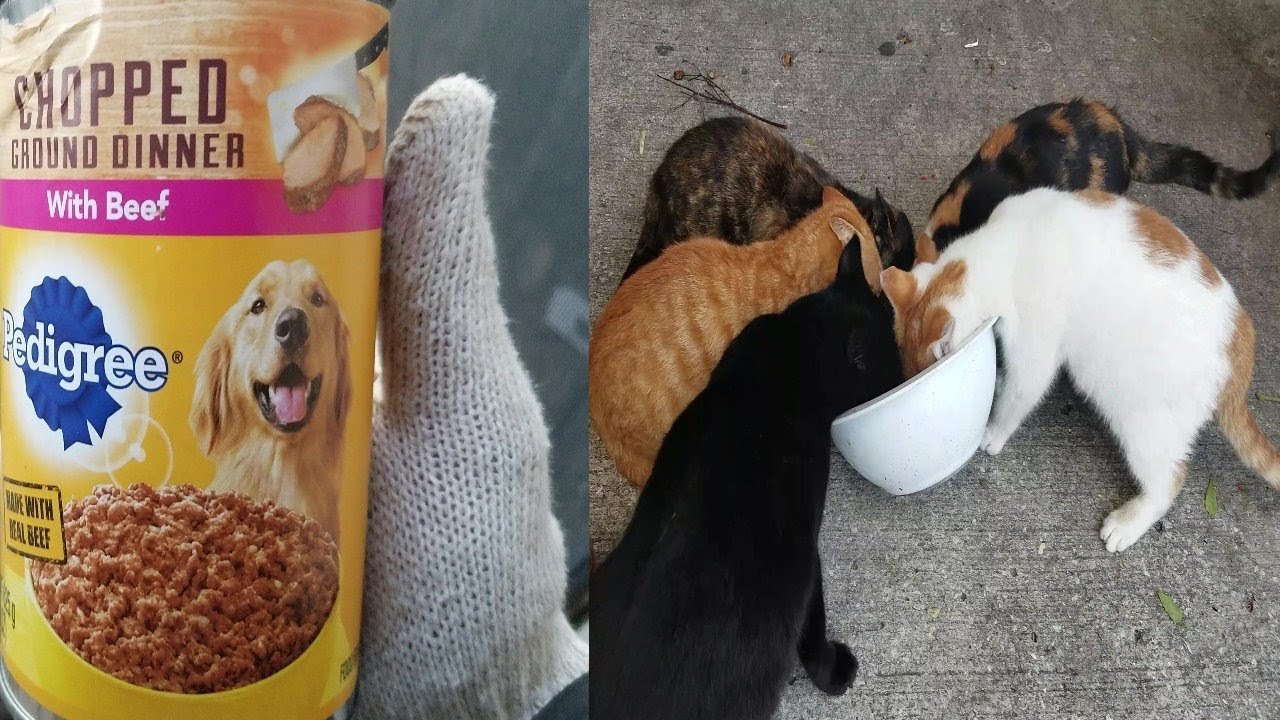Pedigree is a brand that primarily produces dog food, including dry kibble and wet canned food, formulated specifically for dogs’ nutritional needs. While it’s not toxic for cats to consume small amounts of dog food occasionally, feeding Pedigree or any other dog food to cats regularly is not recommended. Cats have unique dietary requirements that differ from those of dogs. They are obligate carnivores, meaning they require a diet high in animal-derived protein, essential amino acids, vitamins, and minerals. Dog food formulations typically do not meet these specific nutritional needs of cats and may lack essential nutrients such as taurine, which is vital for cats’ heart health and vision.
Read our detailed guideline on Can Cat Eat Dog Food?
Can Cat Eat Pedigree?
Can Cat Eat Pedigree? Feeding cats dog food, including Pedigree, as their primary diet can lead to nutritional deficiencies and health issues over time, including heart disease, urinary tract problems, and digestive upset.
It’s essential to provide cats with a balanced diet formulated specifically for their needs. Look for cat food products labeled as complete and balanced, and consult with a veterinarian for personalized dietary recommendations for your cat’s health and well-being.
Why You Need To Avoid Giving Dogs Food To Cat
Feeding dogs’ food to cats can lead to several significant health issues due to the distinct nutritional requirements of each species. Here’s why you need to avoid giving dog food to cats:
- Nutritional Inadequacy: Cats are obligate carnivores, meaning they require a diet high in animal-derived protein and specific nutrients like taurine, which are not adequately provided in dog food. Dog food formulations are designed to meet the nutritional needs of dogs, which differ from those of cats. Feeding cat-inappropriate diets can lead to nutrient deficiencies, such as taurine deficiency, which can result in serious health problems in cats.
- Taurine Deficiency: Taurine is an essential amino acid for cats, vital for their heart function, vision, reproductive health, and immune system. Dog food may not contain sufficient levels of taurine required by cats. Prolonged taurine deficiency can lead to dilated cardiomyopathy (a type of heart disease) and other health issues in cats.
- Urinary Tract Problems: Cats are prone to developing urinary tract issues, such as urinary crystals and bladder stones. The pH balance and mineral content of their diet play a crucial role in maintaining urinary tract health. Dog food formulations may have different mineral compositions and pH levels than cat food, leading to urinary tract problems in cats.
- Digestive Upset: Cats have different digestive systems optimized for their carnivorous diet. Feeding dog food to cats can cause digestive upset, including diarrhea, vomiting, and gastrointestinal discomfort. Ingredients in dog food that are difficult for cats to digest may further exacerbate these issues.
- Obesity and Weight Management: Dogs and cats have different energy requirements and metabolism. Dog food may be higher in carbohydrates and calories than cat food, leading to overconsumption and weight gain in cats. Obesity is a common health problem in cats and can predispose them to various obesity-related conditions.
- Behavioral Issues: Offering cats dog food can disrupt their natural feeding behaviors and preferences. Cats may reject dog food due to taste or texture differences, leading to mealtime conflicts or stress-related issues.
Overall, feeding dogs’ food to cats is not recommended due to the significant differences in their nutritional requirements. It’s essential to provide cats with a balanced diet formulated specifically for their needs to ensure their health and well-being. Consultation with a veterinarian for dietary advice is advisable if you have concerns about your cat’s diet or nutritional needs.

